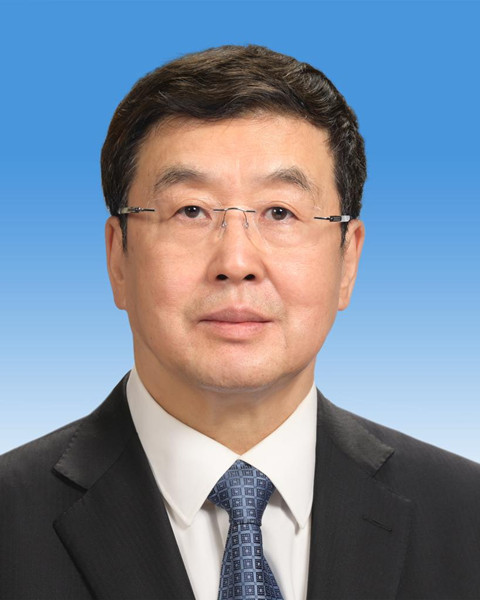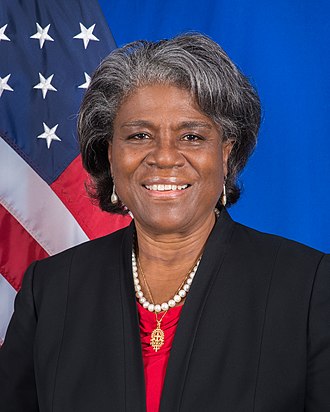LIBERIA ONCE AGAIN is expected to provide exemplary democratic leadership as the country holds its second peaceful transfer of power on Monday 22 January 2024 after a very close presidential and legislative elections that saw former Vice President Joseph Boakai of the United Party win with a little over 1% of votes, narrowly topping the incumbent President George M. Weah in the October-November 2023 polls.
TO THE DISPLEASURE of officers and members of the ruling party, the Coalition of Democratic Change (CDC), President George M. Weah on Friday, 15 November 2023, conceded election defeat to opposition leader Joseph N. Boakai while the votes were still being tallied, which would mark the beginning of the end of a presidency allegedly marred by graft and bad governance.
WITH NATIONAL AND INTERNATIONAL commendation for President Weah’s graceful acceptance of defeat despite his party’s contention that he was too hasty in conceding and that there was evidence of fraud, especially since the win was too close to call. The Coalition for Democratic Change (CDC) questioned the validity of the results specifically in some polling places in the vote-rich Nimba County – the home county under controversial former warlord turned Senator Prince Y. Johnson. The CDC officials were poised to request a recount in Nimba, but the decision was made irrelevant after President Weah phone call to his fellow contestant, Joseph Boakai.
ADDITIONALLY, President Weah immediately proceeded to ensure the set-up of a Joint Presidential Transition Team (JPTT) to facilitate a smooth transition of power in the once volatile African nation that had experienced a 14-year brutal civil conflict that claimed the lives of over 250,000 Liberians and foreign nationals and accounted for the total destruction of the country’s basic infrastructure, from which the country is yet to fully recover.

AS THE INAUGURATION CEREMONY of President-elect Boakai takes place today Monday, 22 January 2024, in accordance with the Constitution, Liberia is playing host to several international high-profile guests from friendly governments across the African continent and beyond. However, there is a strategic twist to the guest list that has left political commentators and pundits wondering about the China-U.S. choice of delegates to the ceremony. This dynamic is essential given the ongoing geopolitical shifts, especially the dwindling post-colonial influence and resentment on the continent, amid China’s growing influence in Africa for the last three decades. For example, the growing influence and membership of the BRICS, especially given a supposed competition to the NATO or similar institutions such as the G7.
THERE IS A GROWING CONCERN among many Liberians that Liberia most influential traditional ally the U.S. hasn’t done much to identify with Liberia through high level visitations to the country for well over 200 years. Liberians in general hold this political slack with serious discontent for two reasons: They believe that because the Liberian was founded by freed slaves from the U.S., Liberia should be given some kind of preferential treatment compared to other African countries. Also, they think Liberia has been a very strategic ally to the U.S. during WWI and WW2 as well as during the cold war. However, in retrospect, one can see why Liberians hold this grudge. In over 200 years of friendship, only three U.S. presidents have ever visited Liberia: Franklin D Roosevelt visit with President Edwin James Barclay on January 26-27, 1943; James E. Carter visit with President William R. Tolbert on April 3, 1978; and George W. Bush visit with Ellen Johnson Sirleaf on February 21, 2008.

THIS DISCONTENT was reinforced, though quietly, when President Barack Obama, an African-American president of the U.S. made three diplomatic visits to Africa and failed to make a single stop to Liberia – the oldest African Republic and most traditional ally. In 2009, President Obama visited Egypt’s Hosni Mubarak (June 4), and Ghana’s John Ata Mills (July 10-11). In 2013, Obama visited Senegal’s Macky Sall (June 26-28 and July 2), South Africa’s Jacob Zuma (June 28 – July 1) and attended Nelson Mandala funeral (December 7-10). He also visited with Tanzania’s Jakaya Kikwete (July 1-2). In 2015, he visited Kenya’s Uhuru Kenyatta (July 24-26), and Ethiopia’s Mulatu Teshome (July 26-28). President Obama’s visit to Ghana hurt Liberians the most, as that visit was to a next door neighbor. Liberians couldn’t wrap their heads around the fact that Liberia was left hanging.
IT THEREFORE BECAME EVEN MORE NOTICEABLE when the Chinese foreign ministry announced on Friday 19 December 2024 that Bater, the Vice Chairperson of the National Committee of the Chinese People’s Political Consultative Conference, will attend the inauguration of President Joseph Nyumah Boakai in Liberia’s capital Monrovia on January 22 as President Xi Jinping’s special envoy. Given the geopolitical importance of China, especially in Africa, critical minds have started to wonder why the Chinese will send such a very high-level representation to Liberia to boost its representation in addition to its Ambassador to Liberia. Some political commentators and pundits believe that it is clear that there is no doubt that China wishes to further step up its game in Liberia, given the strategic history of Liberia in Africa.
THE CHINESE GOVERNMENT’S DECISION was further amplified by President Joseph R. Biden, Jr. announcement of the U.S. designation to the Inauguration. The U.S. delegation is headed by the former U.S. ambassador to Liberia and now U.S. ambassador to the UN Linda Thomas-Greenfield, and other members include Ms. Catherine Rodriguez, Chargé d’Affaires, a.i., U.S. Embassy Monrovia, Stephen K. Benjamin, Assistant to the President and Senior Advisor to the President and Director of the Office of Public Engagement, The White House, Isobel Coleman, Deputy Administrator of the United States Agency for International Development, and Judd Devermont, Special Assistant to the President and Senior Director for African Affairs, National Security Council, The White House.
IT IS IMPORTANT to note that China’s choice of representation doesn’t necessarily suggest a competition with the U.S. for influence in Liberian. Similarly, it must be clear that the U.S. choice of representation doesn’t suggest that the U.S. is downplaying or doesn’t value its long-standing relationship with Liberia. No. However, the comparison doesn’t skip the critical minds with eyes on the continent either. As Africa stands to be a coveted region for geopolitical partnership amid growing resentment for post-colonial relations and China’s growing strategic partnership in Africa, the optics hold relevance. So, why it is true that this diplomatic interplay may not in any interpret the value of Liberia’s partnership with China or the U.S., there is a quiet echo in the diplomatic corridors that the U.S. must begin to see and treat Liberia differently, especially as Africa is poised to redefine its relationship with the West, these little things do matter.

Dr. Clarence R. Pearson, Sr. is a Liberian clergy and social scientist with strong interest in advancing global peace, human rights, a safe planet, and social equity. He holds a BA in Theology, and MA with distinction from the Kofi Annan Institute for Conflict Transformation, University of Liberia. He also graduated with honor from the Louisiana Baptist University and Seminary, Shreveport, Louisiana, USA with A PhD in Psychology and Counseling. Dr. Pearson is a social researcher, an educator, and an author. He has over 29 years of practical professional experience in post-conflict peace-building, recovery, and development with emphasis in both the public and private sector.

